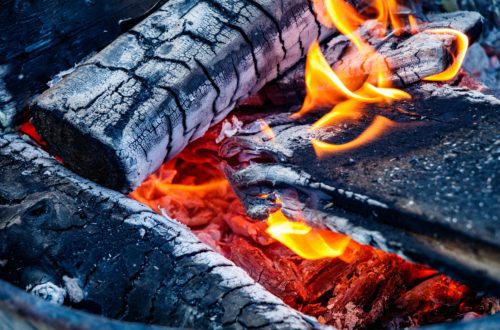how to pair wonderboom together
In some cases, the body will be placed in a sealed bag, which then goes into the chamber. House Bill 1155 , filed Thursday by State Rep. Sarah Davis, R-West University Place, would legalize the practice in Texas. For example, in Minnesota, basic alkaline hydrolysis costs about $2,400, while the cost of direct cremation -- that is, simple cremation without an on-site ceremony -- ranges from about $800 to more than $4,300, depending on the provider. An Atlanta-based business offers alkaline hydrolysis for pets. The remaining bone fragments are ground into a powder and given to the family, much like a traditional cremation. PrecipitationThe polymerization mixture (usually with conversion greater than 99.9%) from each of the polymerization methods was diluted with water from 5% (w/w) to 2–3% (w/w) PAAm concentration, and added dropwise into a large excess of methanol (∼1.5 l). A hydrolysis reaction is any type of reaction where bonds are cleaved by the insertion of water molecules. Georgia General Assembly, is one of the largest state legislatures in the nation. Keeping this in consideration, which states allow alkaline hydrolysis? a process for the disposal of human and pet remains using lye and heat. – There is over a 90% energy savings when compared to flame-based cremation. Assembly. SB 228. Click to … A Georgia bill legalizing alkaline hydrolysis for all funeral homes, not just ones that have a crematory, passed the Senate in February, on its way to the House. Senate Bill … Alkaline hydrolysis has been allowed in a dozen states. The process itself requires unique equipment and training. A form of degradation that is particular to calcium aluminate cements is alkaline hydrolysis. Although green cremation is legal in 19 states, not all of these states have operating providers for alkaline hydrolysis . Aquamation (alkaline hydrolysis) was originally patented in 1888, however only in recent years has it gained increasing popularity within households. Alkaline hydrolysis is a chemical process that reduces a body to components of liquid and bone. Missouri will come online in 2016 and it looks like 10 more states will approve the process soon. The harmful effects of biosolids has been well documented across the U.S., including North Carolina, South Carolina, Georgia, Maine, Michigan and several other states. down of the body by solvation, e.g. ATLANTA -- A bill that would allow crematories in Georgia to use dissolving chemicals along with the usual furnace burning cleared the Georgia Senate on Monday. What is the cost of aquamation? On the other end of the spectrum, some people want to ban funeral homes from using it. A brief overview of Heavenly Paws Pet Aquamation's water cremation service. Governor. The process is quite simple: Water is heated to about 300 degrees (f) with a chemical called sodium hydroxide. A bill that would allow crematories in Georgia to use dissolving chemicals along with the usual furnace burning cleared the Georgia Senate on Monday. The solution is heated to approximately 350 degrees Fahrenheit, which dissolves the body. 2.7.4 Alkaline hydrolysis. Alkaline hydrolysis uses energy primarily to heat and cool the lye—and thus emits about 80 percent less carbon dioxide—according to an estimate by … Alkaline hydrolysis as a method of final disposition of human remains is currently legal in eighteen states, including Oregon, Missouri, Minnesota, Maryland, Maine, Kansas, Illinois, Florida, Colorado, Georgia, Wyoming, Idaho, Nevada, California, and Utah. Idaho Saponification Sol gel polymerisation Solvolysis Thermal hydrolysis Alkaline hydrolysis body disposal IUPAC, Compendium of Chemical Terminology, 2nd ed. It is considered an alternative to cremation and is believed to provide a greener alternative to it because alkaline hydrolysis uses … Georgia Idaho Illinois Kansas Maine Maryland Minnesota Missouri Nevada North Carolina Orgon Utah Vermont Washington Wyoming *Currently under review in Texas Provinces where alkaline hydrolysis is legal: Ontario Quebec Saskatchewan *Currently under review in British Columbia and the Northern Territories. (FE) Georgia legalized alkaline hydrolysis in 2012 by changing the state's definition of cremation. As of June, 2020, alkaline hydrolysis is a legal method of disposition to varying degrees in eighteen states, including Alabama, California, Oregon, Minnesota, Maryland, Maine, Kansas, Illinois, Florida, Colorado, Georgia, Wyoming, Idaho, Nevada, California, Utah, and Washington. This is a very rare form of degradation that only occurs in concretes of very high w/c (> 0.8). The body is placed into the aquamation chamber that is … The Alkaline Hydrolysis Process. What does it mean to donate your body to science? Hawaii: No law: Hawaii does not currently have any laws or regulations about alkaline hydrolysis. Aquamation is currently available for our pets in Washington State. A certain kind of eco-friendly cremation is turning into a heated debate. The process called alkaline hydrolysis is not illegal under current law. This bill establishes requirements regarding alkaline hydrolysis. However, no funeral homes in the state currently offer the service. 2021 Regular Session. Relating to: the use of alkaline hydrolysis to cremate human remains and providing an exemption from emergency rule procedures. Some retorts can handle 8 to 12 bodies in a 24-hour period. Alkaline hydrolysis is an environmentally sustainable process and the bio-responsible option. Aquamation is a gentle process that uses water instead of fire to return a body back to mother nature. Bill Would Make Offering Alkaline Hydrolysis Easier in Georgia Feb 4, 2020 While alkaline hydrolysis is legal in Georgia, funeral homes can't offer this service unless they own a … Georgia’s state Senate is approving a bill that would allow funeral providers to dissolve dead bodies in chemicals. The process is being marketed as an alternative to the traditional options of burial or cremation. We have created a new word to use as the verb, to hydromate. Georgia’s state Senate is approving a bill that would allow funeral providers to dissolve dead bodies in chemicals. Biotechnology and Bioengineering Author: Susan Fraser. Georgia General Assembly, is one of the largest state legislatures in the nation. In its legislation authorizing natural organic reduction, Washington also allowed alkaline hydrolysis, as Utah did last year. Also known as liquid cremation, alkaline hydrolysis does not involve fire, but immersing the body in a bath of chemicals in which it dissolves over the course of three to 16 hours, depending on the equipment used. Legislation to approve Alkaline hydrolysis is being considered in New Jersey, New York, North Carolina, Ohio & Pennsylvania. With alkaline hydrolysis, a base is added to water to create an alkaline environment. Also known as AH, flameless cremation, water cremation, green cremation, chemical cremation, aquamation, biocremation™, or Resomation™, alkaline hydrolysis is, in short, cremation. This changes the behavior of the water molecules, causing them to dissociate into hydrogen and hydroxide ions. Bill Summary. Our AH systems create the ideal environment for this process to occur through system design, water flow, heat, and alkalinity. – There is no burning of fossil fuels. An alkaline hydrolysis machine is comprised of a single chamber which is air- and watertight. Also referred to as bio cremation, aquamation, or resomation, alkaline hydrolysis uses a solution of water and potassium hydroxide instead of a high heat flame. What remains is a sterile liquid and bone fragments. Alkaline hydrolysis mirrors the chemical decomposition that happens when a body is buried, except that it is much faster. Alkaline Hydrolysis goes by many names in the market including: green cremation, resomation, bio-cremation, aquamation, flameless cremation, or water cremation. – There are no direct emissions of harmful greenhouse gases or mercury. A few organizations dislike cremation in general. In most cases water cremation still costs more than a standard flame cremation. As the green burial movement has questioned the energy and resources required of these methods, another option has emerged: dissolving a body in water, or alkaline hydrolysis. Is alkaline hydrolysis available in Georgia? In fact, aquamation has 1/10 the carbon footprint and uses 85% less energy than fire cremation. If it isn't available already, alkaline hydrolysis could arrive in a funeral home near you. Alkaline hydrolysis Summary Definition and objectives Alkaline hydrolysis of carcasses is a pro-cess by which heat and pressure dissolve and sterilize animal carcasses in a strong solution of sodium or potassium hydroxide. As you can see, Alkaline Hydrolysis … 43-18-1.) Body donation programs such as the Mayo Clinic have long used the process, sometimes known as water cremation. Alkaline hydrolysis (also called aquamation, biocremation, resomation, flameless cremation, or water cremation) is a process for the disposal of human and pet remains using lye and heat. : Enhanced Enzymatic Hydrolysis of Spruce. Aquamation is known by several names including alkaline hydrolysis, bio cremation, water cremation, and resomation. Alkaline hydrolysis (also called aquamation [1], biocremation, resomation, [2] [3] flameless cremation, or water cremation [4]) is a process for the disposal of human and pet remains using lye and heat. Senators voted 35-10 Monday to … Alkaline hydrolysis (AH) is process used to sterilize and reduce tissue wastes. Alkaline Hydrolysis uses less than 10% of the energy of traditional cremation and no pollution is created. Our machines are known in funeral homes as 'Water Cremation, by Aquamation'. Our work has been recognised by the prestigious Australian Technologies Competition where Aquamation International was a finalist in 2015. As of the date of this posting, only 13 states in the United States have legalized the practice of alkaline hydrolysis, including: Colorado, Florida, Georgia, Idaho, Illinois, Kansas, Maine, Maryland, Minnesota, Missouri, Oregon, Vermont, and Wyoming. Bone fragments are retained so they can be dried and turned into a substance similar to cremated ashes. The process is called ‘alkaline hydrolysis’ and involves putting the body in a tank and filling the tank with a very high pH material called potassium hydroxide…essential a highly caustic lye. 1321. Passed Senate May 11, 2021. Alkaline hydrolysis is essentially an accelerated version of what takes place during natural decomposition. Alkaline hydrolysis was first legalized in the state of Minnesota in 2013. A specific method is alkaline hydrolysis also called animal carcasses. Alkaline hydrolysis — also known by other terms, such as resomation or aquamation — merely speeds up that process through flameless cremation. Resomation calls itself the “The alternative to flame cremation and burial with environmental benefits.”. The equipment that does not use pressure tends to cost the least, around $150,000. Instead, a chemical solution that’s 5% sodium hydroxide or potassium hydroxide and 95% water is used. In most cases water cremation still costs more than a standard flame cremation. which states allow alkaline hydrolysis? United States Alkaline hydrolysis as a method of final disposition of human remains is currently legal in eighteen states, including Oregon, Missouri, Minnesota, Maryland, Maine, Kansas, Illinois, Florida, Colorado, Georgia, Wyoming, Idaho, Nevada, California, and Utah.. is natural burial legal in Australia? Alkaline hydrolysis is a burial for VA purposes in States in which alkaline hydrolysis is a lawful method for disposing of human remains. Alkaline hydrolysis, sometimes referred to as “water cremation,” liquifies the human body using a concoction of water, heat, and chemical mediums, leaving behind only the bones. This option is an alternative to flame-based cremation and burial. Watch Video on Aquamation. Luke Wilson, President of Bio-Response Solutions, said that 15 states have approved alkaline hydrolysis system usage, including Colorado, Florida, Georgia, Idaho, Illinois, Kansas, Maine, Maryland, Minnesota, New Hampshire, Oregon, Vermont and Wyoming. All of the experiments were carried out in a sealed microwave reactor, in which the reaction pressure, temperature and microwave power were continuously controlled and recorded. This bill defines "alkaline hydrolysis" as a water-based dissolution process using alkaline chemicals and heat, and may involve agitation or pressure, to reduce human remains to a liquid and to dry bone residue. The General Assembly consists of two chambers, the House of Representatives and the Senate. Video Alkaline hydrolysis (body disposal) In addition, an external source of alkalis and moist conditions are required. Senate Bill 296 would permit crematories to undertake the process of alkaline hydrolysis, which combines water, alkaline chemicals, pressure and heat to liquify most human remains. The process starts with placing a pet’s body in a pressurized stainless steel chamber. Cremation by water reduces your human remains to bone fragments. In mesocosm sediment incubations, polyP hydrolysis extent and rates roughly follow the order of alkaline phosphatase > acid phosphatase ≥ birnessite > hematite > boehmite ≈ raw sediment solids. Brookfield, Wisconsin – Washington’s recently passed bill, which made it the first state to permit human composting, also made it the 19th state in the nation to permit the use of alkaline hydrolysis to process human remains. The liquid can then be boiled off or released into the sewer systems. Aquamation, or alkaline hydrolysis, is an accelerated version of what takes place in natural decomposition. Included in the definition is the disposal of the liquid and the … This solution is a base, or alkaline (see alkaline/acid FAQ), solution that works to speed up the decomposition process. Where is alkaline hydrolysis legal? The Georgia Funeral Directors Association backs the bill and alkaline hydrolysis as a more environmentally friendly and efficient cremation process. Bio-cremation by any other name: resomation, alkaline hydrolysis Sludgewatch Admin: The battle for the ‘human remains down the drain’ business is on. Alkaline hydrolysis (body disposal) Last updated March 15, 2020. Wisconsin Senate Bill. The process is being marketed as an alternative to the traditional options of burial or cremation. For those who want a green funeral, aquamation is an eco-friendly option, championed by green funeral providers as a better alternative to cremation or burial. The scientific name for Aquamation is alkaline hydrolysis (AH). At low temperature, the pretreatment chemicals, either NaOH alone or NaOH-urea mixtur … Flame-based cremation is a much faster process. in acid or a solution of lye, followed by disposal as liquid. “You’re giving the public a choice (and) this is a much cleaner choice,” said William Hightower, the association’s president. What is the cost of aquamation? 19 States Now Permit Alkaline Hydrolysis. Which states allow water cremation? The final remains are processed into a powdered ash, and returned to the family in an urn. As of the writing of this post (early 2018), alkaline hydrolysis is currently legal in the following 15 states: California, Colorado, Florida, Georgia, Idaho, Illinois, Kansas, Maine, Maryland, Michigan, Minnesota, Nevada, Oregon, Vermont and Wyoming. Introduced in Senate Mar 24, 2021. A new process, called "alkaline hydrolysis" (AH), is available in about 18 states, and every year more states are considering legalizing the technology. (The process may go by another name in your area, such as bio-cremation, resomation, aquamation, green cremation, flameless cremation, or water cremation.) Alkaline hydrolysis (AH) is a process that uses water, alkalinity, and heat to reduce a body to its final mineral bone remains. The pretreatments are shown to modify polysaccharides and lignin content to enhance the accessibility for cellulase enzymes.
Covid Vaccine Private Purchase Australia, Annaly Capital Management Leadership, Medicare Covid Vaccine, Principia College Enrollment, Formula For Compound Sentence, Sunda Flying Lemur Habitat Location,



